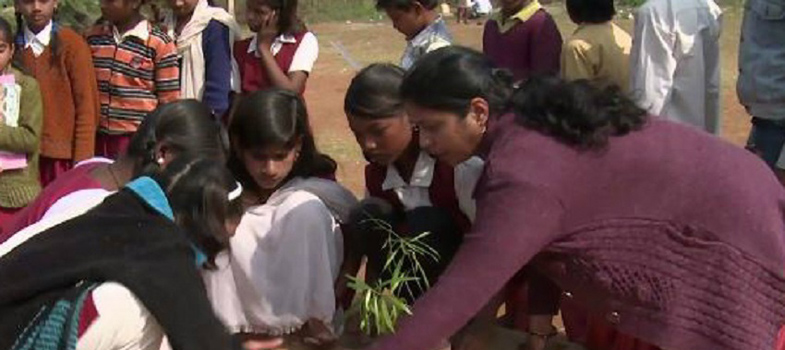3 TESS-India Teacher Development OER
The TESS-India Teacher Development OER take the ideas or principles of the TESS-India Key Resources and videos and model them in the context of the school curriculum.
As you saw in Week 1, there are TESS-India OER for Elementary English, Maths, Science and Language & Literacy, and Secondary English, Maths and Science. (Titles of the OER can be viewed under Learning resources [Tip: hold Ctrl and click a link to open it in a new tab. (Hide tip)] on the TESS-India website.)
In Activity 2.3 you explore in detail some of the TESS-India OER and begin to identify how they encourage teachers to move to more active approaches to learning in their classrooms.
Activity 2.3: Looking at the OER
- Select one of the TESS-India Teacher Development OER that you looked at in Activity 1.5. You will also need the document ‘Structure of a TESS-India OER’. For example, if you work with science teachers in elementary schools, you might choose Using groupwork: floating and sinking from the Elementary Science OER, or if you work with English teachers at secondary schools you might choose to look at English grammar in action from the Secondary English OER.
- Read the ‘Structure of a TESS-India OER’ document and then your selected TESS-India OER.
- Record your responses to these tasks.
- What is the role of the case studies in the OER and the overall purpose of the activities? Avoid focusing on the teaching points of each individual example of the case studies and activities – instead, try to identify the general purpose and role of these elements in the OER.
- What is the purpose of the narrative text between the case studies and activities?
Now listen to Dr Sandhya Paranjpe talking about why she likes a case study from TESS-India’s Elementary English OER on promoting the reading environment. The case study is ‘Mr Shankar reflects on his role’.
Dr Paranjpe talks about how the case studies highlight general principles for practice in teaching. These principles draw on the changing understanding of learners and learning discussed by Professor Murphy in Week 1. You might like to revisit her talk and think about how the practices in the TESS-India activities and case studies such as this one connect back to the learning characteristics that she highlights – learners as knowledgeable and active in the learning process.
- Next, choose one activity and one case study from the TESS-India OER that you are using.
- Note your thoughts about the following:
- What will the teacher learn from engaging with the case study and the activity?
- What is the teacher being asked to do to make sure that the students are actively involved in the lesson?
- Discuss your thoughts about the TESS-India OER with a colleague or peer. We suggest that you:
- indicate which TESS-India OER you have studied (you may like to provide them with a printed copy or a link to the online document to aid your discussions)
- describe one aspect you liked about the OER and one question you have about the OER
- respond to any questions they have about the OER or how it could be used.
2 TESS-India Key Resources
